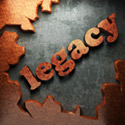Registered Rep: by Diana Britton on May 22nd, 2012
 Advisor panel speaks about adding junior partners at conference.The worst thing you can do when bringing on a junior partner is to immediately anoint them as heir apparent, said Daniel Boyce, FA and founding partner of the Center for Financial Planning in Southfield, Mich. “That is backwards in my estimation,” Boyce told attendees of Raymond James Financial Services’ National Conference for Professional Development in Orlando, Fla.
Advisor panel speaks about adding junior partners at conference.The worst thing you can do when bringing on a junior partner is to immediately anoint them as heir apparent, said Daniel Boyce, FA and founding partner of the Center for Financial Planning in Southfield, Mich. “That is backwards in my estimation,” Boyce told attendees of Raymond James Financial Services’ National Conference for Professional Development in Orlando, Fla.
Any potential partner needs to earn their right to sit at the table with the partners, Boyce said. Give them the opportunity, but wait for them to step into that opportunity before you give them that reward.
Boyce, head of a $700 million AUM firm, joined other top advisors on a panel session discussing the dos and don’ts of recruiting junior partners. Boyce just brought on a new partner recently, Melissa Joy, who joined the panel to share her insights.
Boyce’s motivation in bringing on Joy was not to transfer clients over to her, as his firm already had an ensemble practice in place for that. The age differential was the motivator; he wants successors of different generations. Joy is in her 30s, he said.
Todd Sanford, branch manager of Sanford Financial Services in Portage, Mich., said his return on investment in bringing Scott Williams into his practice was so high that it would probably rival buying Apple a decade ago.
For Sanford, bringing on a younger partner was a tool for expanding the firm’s generation reach, as Williams could work with people with similar life experiences and serve younger people referred to the firm.
But you can’t just hire a junior partner the moment you need them, Sanford said. You’ve got to hire that person years before you need them.
Boyce said his role at the firm has changed over the years, to become a mentor for planners and staff. He says that role is probably the most satisfying for him, and it’s also the most important. Boyce says you can’t view your staff as an expense, but an investment.
“It’s the human capital that is your biggest asset and resource.”
Do you agree?















